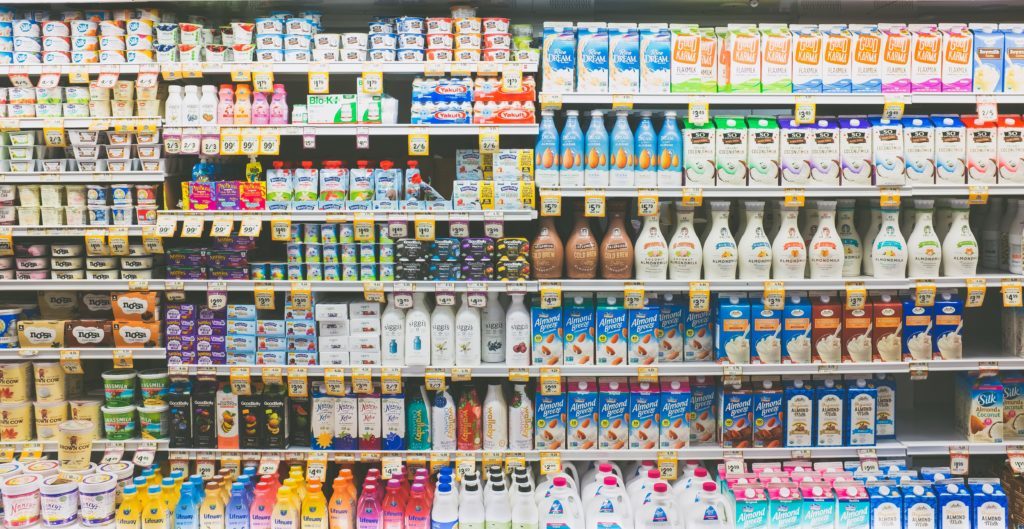
By Megan Sewards MS, RD
As a Registered Dietitian I am often asked “Does dairy cause mucus, inflammation, or cancer?” Many individuals I find either avoid dairy or cut it out entirely, yet don’t give a reason why expect for “I hear it’s bad for me.” Here are a couple of pros and cons on dairy consumption so you can be better informed:
Why Do We Consume Dairy?
Since a young age, I was always told to “drink my milk” since it would help me develop strong bones. Yes, it is rich in calcium and other pertinent nutrients such as potassium, phosphorus, Vitamin B12 and not to mention 8 g of protein per serving. These nutrients are indeed in fact beneficial for stronger bone health, overall strength/muscle mass, as well as energy. Cultured dairy products such as yogurt/kefir also provide an added benefit as they contain essential probiotics crucial for gut health.
Does Dairy Affect Everyone the Same Way?
Easy answer, No! Some individuals have no issues with the recommended intake of dairy from milk, cheese and yogurt, however most individuals – up to 65% of humans to be exact – have a reduced tolerance to lactose (milk sugar) after infancy. As we age our ability to digest lactose decreases due to a decreased production of lactase (an enzyme that breaks down milk sugar). This often results in symptoms such as bloating, gas, cramping, diarrhea and possibly even nausea. This gastric distress can be linked to overall inflammation within the body. Others may have more severe intolerance to milk proteins such as whey or casein. If you suffer from any of the above than yes, it is recommended to avoid dairy all together and or consume it in quantities that are tolerated.
Is Dairy Linked to Disease or Cancer?
Current research from the World Cancer Research Fund as well as AICR suggests that there is a probable association between milk intake and lower risk of colorectal cancers (possibly related to increased calcium). However, a diet high in calcium may increase risk for prostate cancer. Limited evidence however links overall dairy intake with development of other cancers or adverse side effects when consumed in appropriate quantities of 2-3 servings/day.
Does Dairy Increase Mucus Production and Inflammation?
According to the Mayo clinic, “Although drinking milk may make phlegm thicker and more irritating to your throat than it would normally be, milk doesn’t cause your body to make more phlegm.” Well, that settles that. As for inflammation, if you are intolerant to lactose and or milk proteins and continue to consume dairy on a regular basis, this is where there may be a development of inflammation. For those however that tolerate these products, there is no need to hold concern that they may be dangerous.
With that said, knowing which type of dairy to purchase is essential. With non-organic dairy products, understand that you run the risk of consuming undesirable ingredients such as antibiotics, hormones and genetically modified ingredients which could lead to gastric/overall inflammation. Cows may have been injected with the above and or fed a GMO feed that could potentially get into their milk supply. When purchasing organic dairy, you can ensure none of the above will be in your products.
Is Goat Milk Better for You? What about Raw Milk?
Goat milk is known to hold a lower lactose level and is higher in protein which may be better digested by some. Drinking raw milk is thought to have higher quantities of digestive enzymes and amino acids, however note the FDA does not warrant unpasteurized milks as safe for consumption, given risk for ingesting potential harmful bacteria. I would advise those that have compromised immune function or are receiving chemotherapy treatments, against drinking/eating any food or drink item that is not pasteurized.
Should I Be Drinking Milk Alternatives?
If you think you may have or have been diagnosed with lactose intolerance or a milk protein allergy, than YES. Give them a shot! There are so many options out on the market now to try. Almond, Cashew, Coconut, Hemp, Soy, Pea, Rice, Oat milk, you name it, these are all options. Although they may be lower in protein when compared to cow’s milk, they often are lower in fat and sugar (when purchasing unsweetened that is) and may even provide higher levels of desired nutrients as they are often fortified.
If nut milks are a go for you, look for unsweetened brands to avoid added sugars and watch out for potential harmful additives such as carrageen and or GMO ingredients. It is often more economical as well as healthful to make it yourself at home. Contact me at foodrxrd@gmail.com for more information or follow me on Instagram at @foodrxrd. Be sure to visit my website for more info.
—
weSPARK Cancer Support Center is located in Los Angeles and offers completely FREE programs, workshops, classes and individual therapies to cancer patients, survivors and their loved ones. Remember to take a look at our monthly program schedule for more information about the services we offer.
Stay connected to weSPARK!
CONNECT
RECENT POSTS
- Feeling Stress? Try This April 16, 2024
- Breathing with the Tree and Radiant Health Image April 1, 2024
- Radiant Health & The Three Paths of Determination March 22, 2024
- Place & Soma Sign Enhancement March 11, 2024
- Understanding Lymphedema and Cancer March 4, 2024





